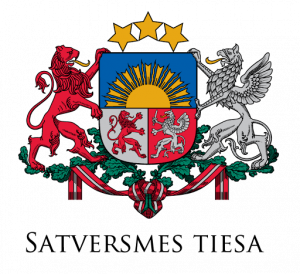Summary
The Constitutional Court of the Republic of Latvia has always seen itself as part of the international legal order and the global community of constitutional courts. Therefore maintaining intensive international contacts with constitutional courts in Europe and other parts of the world – both bilaterally and multilaterally – is a matter of special importance to the Constitutional Court.
The regular exchange of opinions and experience with the constitutional courts in Europe is a special priority of the Constitutional Court. The Constitutional Court also makes an effort to maintain contacts with non-European constitutional courts.
The Constitutional Court maintains regular professional contacts not only with national but also with international courts. Engaging in dialogue with the European Court of Human Rights in Strasbourg is a matter of particular interest for the Constitutional Court, as it is crucial to secure a uniform interpretation and application of the European Convention on Human Rights. Close contacts with the Court of Justice of the European Union are equally important for the Constitutional Court. It is beyond any doubt that a uniform application of European Union law can only be guaranteed through cooperation between the Court of Justice in Luxembourg, on the one hand, and national constitutional courts, on the other hand.
The Constitutional Court has a productive cooperation with the European Commission for Democracy through Law (Venice Commission) of the Council of Europe, which has been providing strong support for the Court. In 2000 Constitutional Court of the Republic of Latvia became a member of the Conference of European Constitutional Courts (CECC). In 2011 the Constitutional Court became an institutional member of the World Conference on Constitutional Justice (WCCJ). In 6 October 2022 the Constitutional Court was approved as part of the Bureau of the World Conference on Constitutional Justice.
The Constitutional Court also hosts conferences and seminars aimed at exchanging views and at dealing with issues related to the work of constitutional courts.
Representatives of the Constitutional Court participate in various bilateral and multilateral meetings, conferences and seminars on the issues of constitutional law and constitutional justice.
The Constitutional Court of the Republic of Latvia seeks to foster international exchange by providing translations of a selection of its decisions, judgments and press releases into English.




